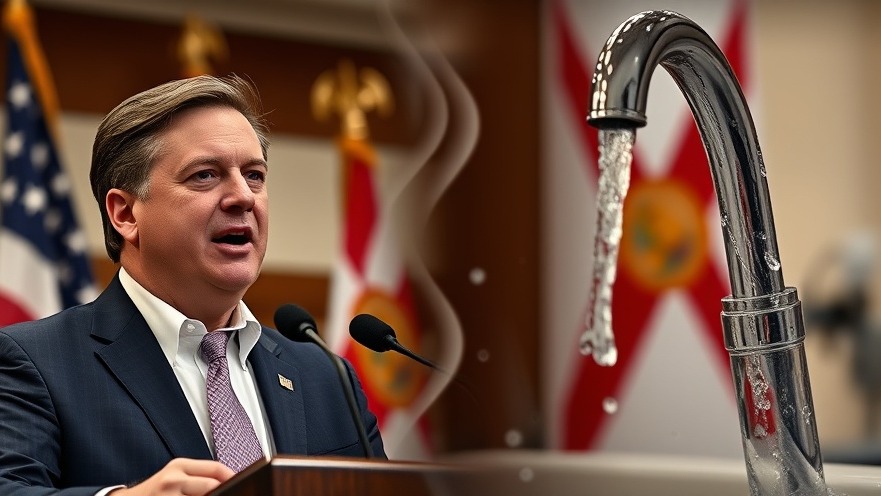
DeSantis Takes a Stand: The Fluoride Debate in Florida
On May 6, 2025, Florida's Governor Ron DeSantis signed a bill that has stirred considerable debate: the prohibition of fluoride additives in the state's public water supply. With the catchy phrase, 'Hydrate, not medicate,' advocates argue that the ban is an essential step in improving public health and individual freedom. This significant legislative move could reshape not only how Floridians consume water but also how the public perceives government intervention in personal health choices.
The Long History of Fluoridation
The addition of fluoride to public drinking water has been contentious since its inception in the 1940s. Initially hailed as a breakthrough in cavity prevention, communities across the US have debated its safety and efficacy for decades. In fact, studies reveal the complexity behind fluoride: while it can significantly reduce dental cavities, questions regarding its long-term health effects, especially concerning young children, have prompted a reevaluation of water fluoridation policies.
Public Health vs. Personal Freedom
The ban has ignited discussions around the balance between public health initiatives and personal freedoms. Proponents like Governor DeSantis frame the debate as a victory for individual rights, suggesting that citizens should have complete control over what goes into their bodies. Critics, however, argue that banning fluoride could lead to an increase in tooth decay and other oral health issues, particularly among vulnerable populations who might not have the financial means to access other dental care options.
Parallel Examples from Other States
Florida is not alone in this movement. Other states, including Texas and Idaho, have seen similar legislative initiatives addressing the issue of fluoride in their water supplies. In Texas, an attorney general recently initiated a probe into fluoride levels in toothpaste, echoing concerns about consumer choice and the potential for over-medication. This growing trend indicates a shift in public sentiment regarding governmental involvement in healthcare, prompting similar legislative actions nationwide.
Current Implications for Public Health
The immediate implications of Florida's ban might be mixed. Dental health organizations are already voicing concerns about potential rises in dental cavities. Conversely, advocates for health freedom celebrate what they view as a significant win against government overreach. The impact of this legislation is likely to be debated among health experts, state lawmakers, and the public alike.
Looking Ahead: Future Predictions and Trends
As this situation unfolds, we can anticipate further scrutiny of water quality regulations across the U.S. Will other states follow Florida's example? Observing how public health metrics change in Florida may provide critical insights into the effectiveness of community fluoridation. As freshwater resources become increasingly precious, adjustments in public health policies must also consider environmental safety and individual health choices.
Decisions for Residents: What Can You Do?
For residents of Florida, the question now is not just about public policy but personal choice. As fluoride is removed from taps, individuals must take proactive steps to ensure their health. This may mean seeking alternative sources for fluoride, such as specific dental products and supplements. It's crucial for Floridians to engage with their local health resources and educate themselves on maintaining dental hygiene in this shifting landscape.
Engaging with Future Health Initiatives
As we move forward, it's essential for citizens to stay informed about health initiatives and advocate for policies that genuinely reflect their values. In Florida, this is particularly evident as residents navigate the waters of fluoride and public health reforms. Engaging with policymakers, participating in community discussions, and staying informed through credible news outlets will empower individuals to make effective health decisions.
In conclusion, as the legislation unfolds and its effects are measured, residents and policymakers must remain vigilant and engaged. The fluoride debate encapsulates broader themes of health autonomy and community responsibility—a relevant discourse not just for Floridians but for all Americans.
 Add Element
Add Element  Add Row
Add Row 



 Add Row
Add Row  Add
Add 


Write A Comment